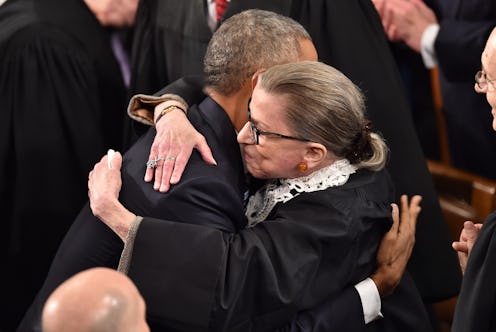News
The Split SCOTUS Probably Just Saved You
On Monday, The Supreme Court decided not to rule on Zubik v. Burwell, a case brought by religiously affiliated non-profit groups against Obamacare's contraceptive mandate. Religiously affiliated groups do not want to be forced to pay for their employees' health insurance if it covers contraception, since the groups' religions do not condone the use of contraception. By not ruling, and sending the case back to a lower court, SCOTUS may have made the case seem unimportant; however, the inaction is of the upmost importance, and presumably enabled by the even split between liberal and conservative justices on The Court. Essentially, by not ruling, the evenly divided SCOTUS protected contraceptive rights, and Obamacare (for now) — which may not have happened if all nine former justices had voted.
Until Justice Scalia's departure from The Supreme Court, there were more conservative justices than liberal justices on the court. Therefore, CNN explained that before Scalia's death, SCOTUS would have likely ruled on such a case, and ruled in favor of the groups that claim Obamacare as an infringement on their religious rights. However, the split SCOTUS could not agree on contraceptive mandate, and decided that the case could be better sorted out in a lower court — which kept the Obamacare contraception provision from being overturned (again, for now).
Even though the equally divided SCOTUS did not rule on Zubik v. Burwell, and therefore kept Obamacare's contraceptive coverage mandate intact for the time being, President Obama was not entirely satisfied with the non-ruling. The President suggested in an interview with BuzzFeed on Monday, that if there were nine SCOTUS justices, the contraception case would have had an even more positive outcome.
President Obama is correct: if Judge Merrick Garland was confirmed, SCOTUS probably would have had enough liberal-minded justices to rule definitively against the religiously affiliated groups, thus helping to ensure that Americans have access to contraception, no matter the religious beliefs of their employer. Furthermore, the lower courts that will consider the case now may rule in favor of the religious groups, allowing them to create a separate healthcare plan just for contraception.
On this matter MSNBC reported that two justices on the court, Ruth Bader Ginsberg, and Sonia Sotomayor, released their own response, writing,"Requiring that women affirmatively opt into such coverage would impose precisely the kind of barrier to the delivery of preventive services that Congress sought to eliminate." Clearly, these two justices would have ruled against the religious groups, had the court not found itself divided.
By refusing to give a hearing to Judge Merrick Garland — the President's supreme court nominee — the conservative Congress is succeeding in its wish to keep SCOTUS from ruling in favor of the Obama Administration's legislation. Therefore, while the no-longer-conservative SCOTUS may not have ruled against Obamacare in Zubik v. Burwell, without a ninth justice, The Court was not able to reaffirm the contraceptive mandate, either. Without nine justices, SCOTUS's power is diminished — all the court could do in this case was defer to a lower court.
